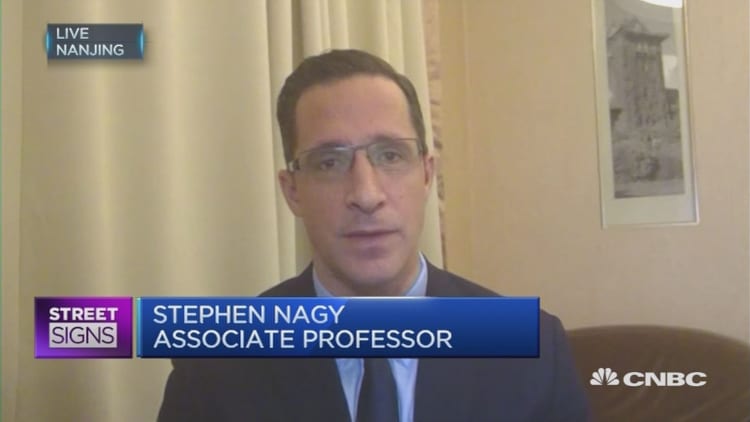Political uncertainty from South Korea's Choi-gate has left the outlook for Asia's fourth-largest economy looking as cloudy as a glass of makgeolli, a traditional Korean rice liquor.
The country's 64-year old head of state, Park Geun-Hye, surrendered her powers to parliament on Tuesday after prosecutors labelled her a co-conspirator in an influence-peddling case, dubbed Choi-gate, involving her close friend Choi Sun-sil. It's unclear when Park will officially resign, or if her future lies in impeachment instead. Opposition parties intend to introduce an impeachment motion in parliament as early as Friday.
Even before the scandal hit, South Korea was already battling an economic morass. Over the past two years, exports have only seen one month of gains amid a slowdown in China, the country's largest trading partner. Meanwhile, household debt hit an all-time high in the third quarter this year and youth unemployment stands at a record high of 9.4 percent.
Weakening consumer sentiment and a slow pace of reforms may soon be new additions to that list amid President Park's looming exit.
"Park's position of not resigning immediately puts the political, legislative and economic process at stake. There will now be instability as to who's putting policies forward," Stephen Nagy, associate professor at Tokyo's International Christian University, told CNBC's "Street Signs."
The economic damage was already bubbling up. Last week, central bank data showed confidence among South Korean consumers hit a seven-year low in November, with Citi economists attributing the dismal performance to political unrest.
"The economy faces more downside risks now as consumer and investor sentiment contract, caused by the recent political situation," finance minister Yoo Il-ho said during a Wednesday speech, according to Reuters.
As a result of the muddled political environment, Natixis investment bank expected gross domestic product (GDP) growth to slow to 2.5 percent in 2016 and 2.4 percent in 2017, from 2.6 percent last year.
Moreover, policy decision-making will likely be stalled until the country gets more clarity on Park's fate and timing of the next presidential election, now widely expected to occur before the originally expected December 2017. However, that will likely derail urgent reforms needed in the labor market.

Park's administration wanted to allow companies more freedom when it comes to hiring and firing workers as well as to expand a performance-based salary system, moves aimed at boosting competitiveness, but which opposition parties had vehemently resisted. In the aftermath of the scandal, such reforms were "effectively dead in the water," according to political consultancy Eurasia.
In the corporate space, meanwhile, calls are growing for structural change at top chaebols, or family-run conglomerates, amid a slew of recent woes. But those calls were unlikely to be heard by a government still focused on Choi-gate.
In August, Hanjin Shipping filed for bankruptcy, while Lotte Group's vice-chairman committed suicide. September saw fresh worker strikes at Hyundai Motor, while Samsung Electronics recalled its Galaxy Note 7 smartphone from the market last month. Problems at these blue-chip chaebols were weakening Korea's brand globally and helping depress the economy, Nagy noted.
Chaebols are the backbone of the Korean economy, but they are often linked with unfair business practices and uneven power distribution, resulting in widespread calls for massive restructuring and better governance. Several, including Samsung, LG, SK Group, Hanwha, Hanjin and Posco, were being investigated after they were found to be implicated in Choi-gate, adding to growing public frustration.
But the messy political situation implied "limited space for policy progress to address structural weakness," Natixis warned in a recent note.
Still, there's more hope for labor reforms because of sizable support from the opposition.
Parliament is expected to pass several bills designed to tighten laws for chaebols before the current session ends on Dec. 9. These new laws will make it more difficult for chaebols to engage in collusion, maintain nepotistic control of operations, excessively compensate executives and exert undue political influence, Eurasia said in a report this week.
Legislation to raise corporate income taxes, a major feature of the opposition's policy agenda, to 25 percent for firms with net assets exceeding 50 billion won ($45 million), from 22 percent previously, was also on track to be passed alongside the 2017 budget on Dec. 2, Eurasia continued.
But while higher taxes can expand government coffers, they could ultimately hurt GDP.
"The increase of corporate tax rates will put pressures on Korean companies that are already beleaguered by excess global capacity, industrial restructuring in sectors such as ship building and marine shipping, and increased competition externally. The short-term impact will likely be negative for economic growth," Natixis said.

